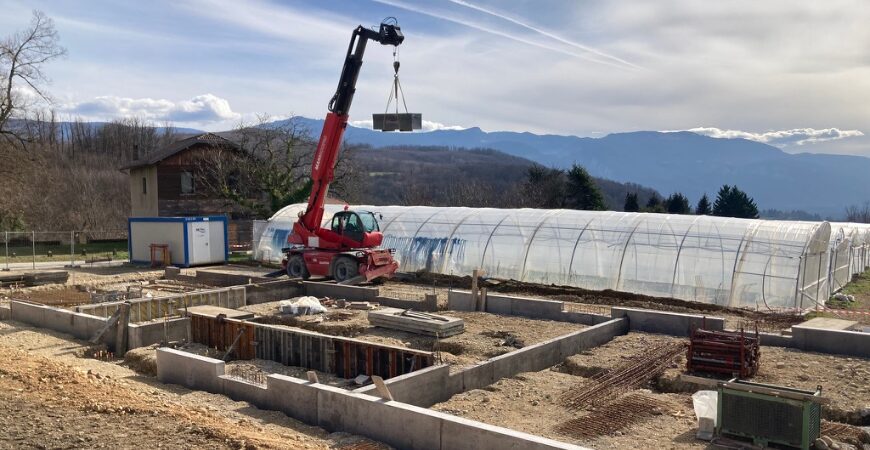Emmaüs Épargne Solidaire – activist investments!
In France, the Movement has an innovative tool to support the work of Emmaus groups: a socially-oriented property company! In the face of mounting property pressure, this initiative allows people to make socially responsible savings by supporting Emmaus’ social project. To find out more, we spoke to the project manager, Aymeric.
Where did you get the idea of starting a project like this? What was the thinking behind it?
The idea of Emmaüs Épargne Solidaire (Emmaus solidarity savings) came about based on one simple fact: Emmaus groups are struggling to access suitable premises for their activities. Real estate pressure, which is particularly significant in certain regions, poses a major obstacle to their development. The increase in interest rates also makes it more difficult to borrow money from the bank. In addition, projects related to economic activities are less likely to benefit from financial support, compared to housing projects.
At the same time, we noted a real interest from citizens who were keen to invest their savings in projects with high social value. Our property company was created to address these two challenges: offering Emmaus groups suitable premises, while allowing individuals to invest their savings in a meaningful way. This initiative fully reflects the values of the Movement: solidarity, social inclusion and innovation.
Could you give us more details about how it was set up? How does it work and how has the project been received by the public?
Emmaüs Épargne Solidaire works like a typical property company – acquisition, renovation and building management – but it has a strong social remit. We collect savings from individuals (via the Lita.co platform, a well-known player in solidarity finance) and from Emmaus groups.
Since setting up Emmaüs Épargne Solidaire, we have raised over €1.7 million from 1,300 individuals and €1 million from some forty Emmaus groups (including Emmaus Europe!).
The project has had a very positive response from the start. This support demonstrates that there is a real demand for solidarity investment solutions, which combine social impact and moderate returns (individual investors benefit from tax advantages).
These funds allow us to acquire or renew buildings for business activities, such as sales rooms, sorting centres, repair workshops, storage spaces, offices, and more. We can then make these available to Emmaus groups on affordable terms.
The property company has been up and running for three years now, four projects have already been supported and a fifth is underway. What are your plans for the future?
We have big plans for the next few years! Our aim is to support approximately thirty Emmaus groups over the next 10 years. In the medium term, we would like to develop new ways of working to meet other needs within the Movement. Each project supported is additional proof that solidarity finance can be a powerful driver to boost Emmaus groups’ local initiatives.
What advice would you give to Emmaus members who would like to set up this type of project in other countries?
I would say that you should adopt a pragmatic approach and surround yourselves with financial and operational partners who are familiar with the issues and working practices of a socially responsible property company. The success of Emmaüs Épargne Solidaire is also down to the fact that we set up a project team with expertise in real estate, communication and financing. In this respect, being able to count on the support of a national network, as our property company was able to do with Emmaus France, is a prerequisite for success.
It is also important to take the time to understand the specific local characteristics of the groups that would like support from the property company and explain the collaboration process in a clear and informative way. One of the keys to success lies in the partnership that can be created with groups. There are many long stages involved. It requires a genuine relationship built on mutual trust.
Secondly, you must not hesitate to get the public involved. Across Europe, individuals are looking for new ways to take action, including using their savings. This type of project can act as an excellent tool for rallying people, provided it is supported by people who are committed and determined to change things.
Lastly, transparency and regular communication with investors are essential if you are to build a lasting relationship based on trust.

© Tero Loko



